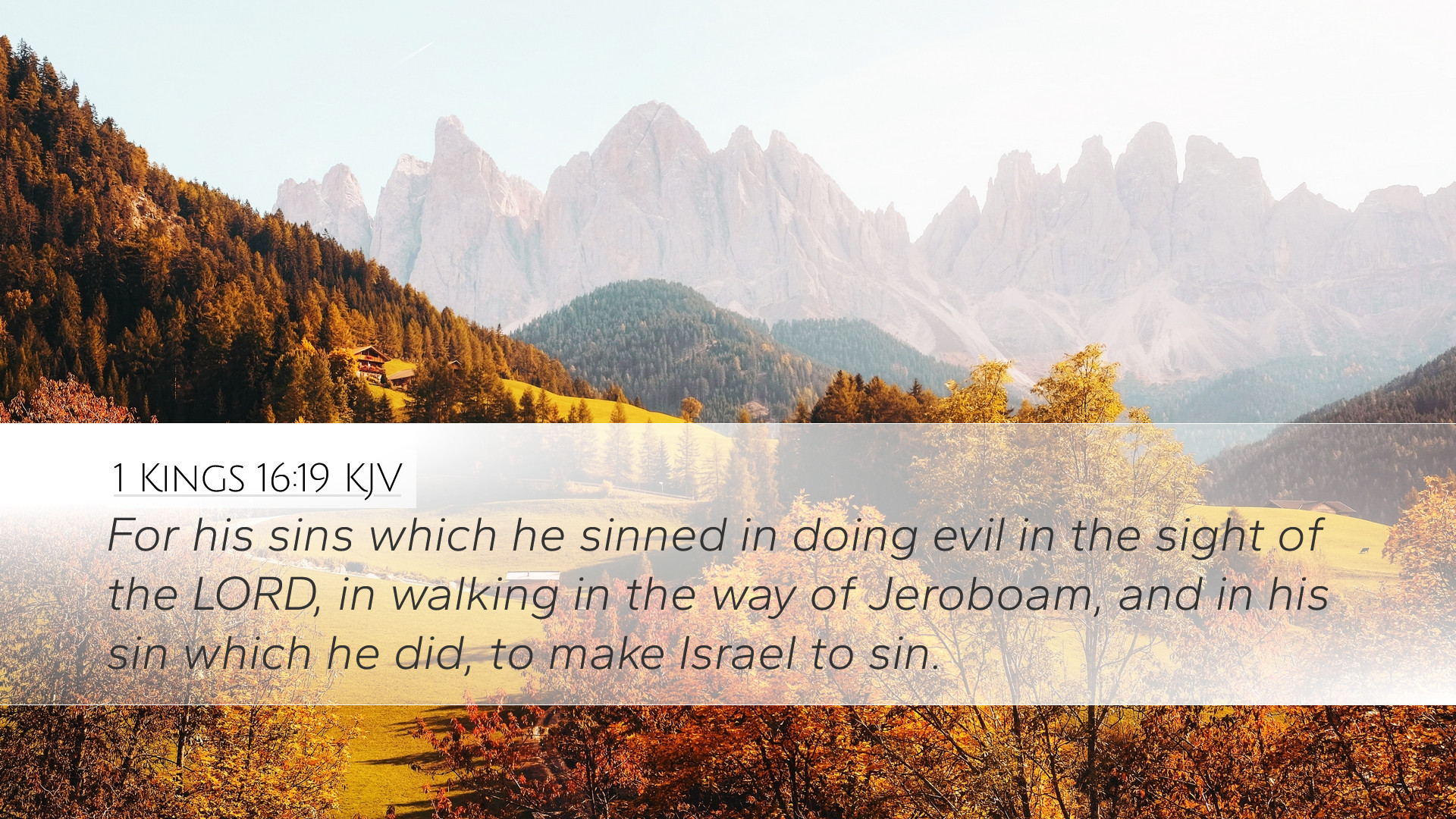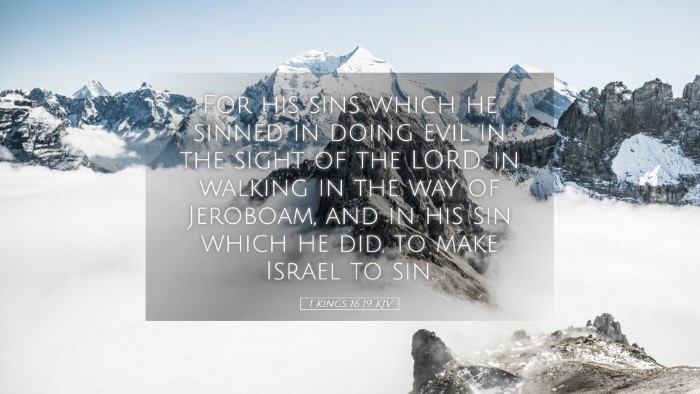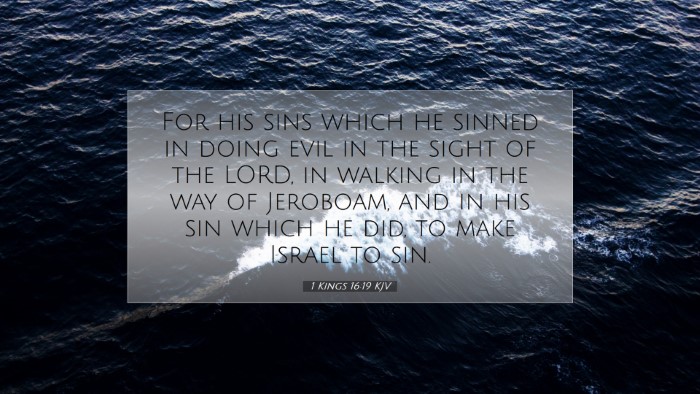Commentary on 1 Kings 16:19
Verse (1 Kings 16:19): "For his sins which he sinned in doing evil in the sight of the Lord, in the way of Jeroboam, and in his sin which he sinned to make Israel to sin."
Introduction
The historical context of 1 Kings 16 reveals a tumultuous period in the kingdom of Israel characterized by moral and spiritual decline. The verse in question serves as a pointed reflection on the nature of sin and its far-reaching implications, particularly the influence one individual can have on an entire nation. In this commentary, we will extract insights from public domain sources, including Matthew Henry, Albert Barnes, and Adam Clarke, to explore the theological implications and practical applications of this verse.
The Nature of Sin
Matthew Henry's Insight: Henry emphasizes the severity of the sins committed by the kings of Israel. He notes that sin in the sight of the Lord is never taken lightly. It highlights the relational aspect of sin, not just as a legal infraction but as a breach of trust between God and His people. The deliberate nature of these sins, particularly following the path of Jeroboam, underscores willful disobedience to divine commands.
Albert Barnes' Commentary: Barnes further elaborates on the specifics of Jeroboam’s sins, which included idolatry and the establishment of golden calves for worship. He explains that these actions not only represented a rejection of Yahweh but were also a means to consolidate power politically. The influence of a leader's actions can lead a nation into grave spiritual decline, setting the stage for widespread apostasy among the people.
The Consequences of Sin
Adam Clarke's Perspective: Clarke draws attention to the inevitability of consequences that follow sinful behavior. He stresses that when leaders behave immorally, the repercussions extend beyond personal failure and impact the community as a whole. In this verse, the repeated phrase "to make Israel to sin" illustrates how leaders lead their followers into destructive patterns, diverting them from authentic worship and loyalty to God.
The phrase "in the sight of the Lord" serves as a sobering reminder that all actions are ultimately accountable to God. This theme resonates through the prophetic literature where the Lord claims that He sees all and knows the intentions of the heart.
The Path of Jeroboam
The reference to the "way of Jeroboam" calls for a deeper examination of his actions. Jeroboam's reign marked the inception of a divided kingdom, where he sought to ensure his own power through compromise with idolatry.
- Spiritual Infidelity: Jeroboam's decision to establish golden calves posed a direct challenge to God's sovereignty and led to spiritual infidelity among the people.
- Political Motivations: His idolatrous practices were not merely personal but deeply intertwined with political motivations, illustrating the danger of intertwining governance with paganism.
- Long-Lasting Impact: The legacy of Jeroboam continued to affect subsequent kings, showcasing the lasting influence of sin that transcends generations.
Application for Today
This commentary on 1 Kings 16:19 provides rich material for pastors, theologians, and students of scripture in several contexts:
- The Weight of Leadership: This verse serves as a potent reminder of the heavy responsibility borne by leaders. Today’s leaders must recognize that their actions can lead followers astray or draw them closer to God.
- Calls for Repentance: The ongoing theme of turning back to God from sinful paths is one of the major applications of this text. It calls both individuals and communities to seek reconciliation with God.
- The Role of Community: The verse emphasizes the idea that sin does not occur in isolation. It encourages communal accountability where the body of believers collectively seeks godliness.
Conclusion
1 Kings 16:19 encapsulates a significant moment in biblical history where the implications of sin were profound, leading Israel into a cycle of rebellion and idolatry. Drawing from the insights of respected biblical commentators, we observe the theological weight behind leadership decisions and the broader impact of sin within a community. It invites all believers to reflect on their spiritual walk and influence, urging a return to paths of righteousness that honor God.


